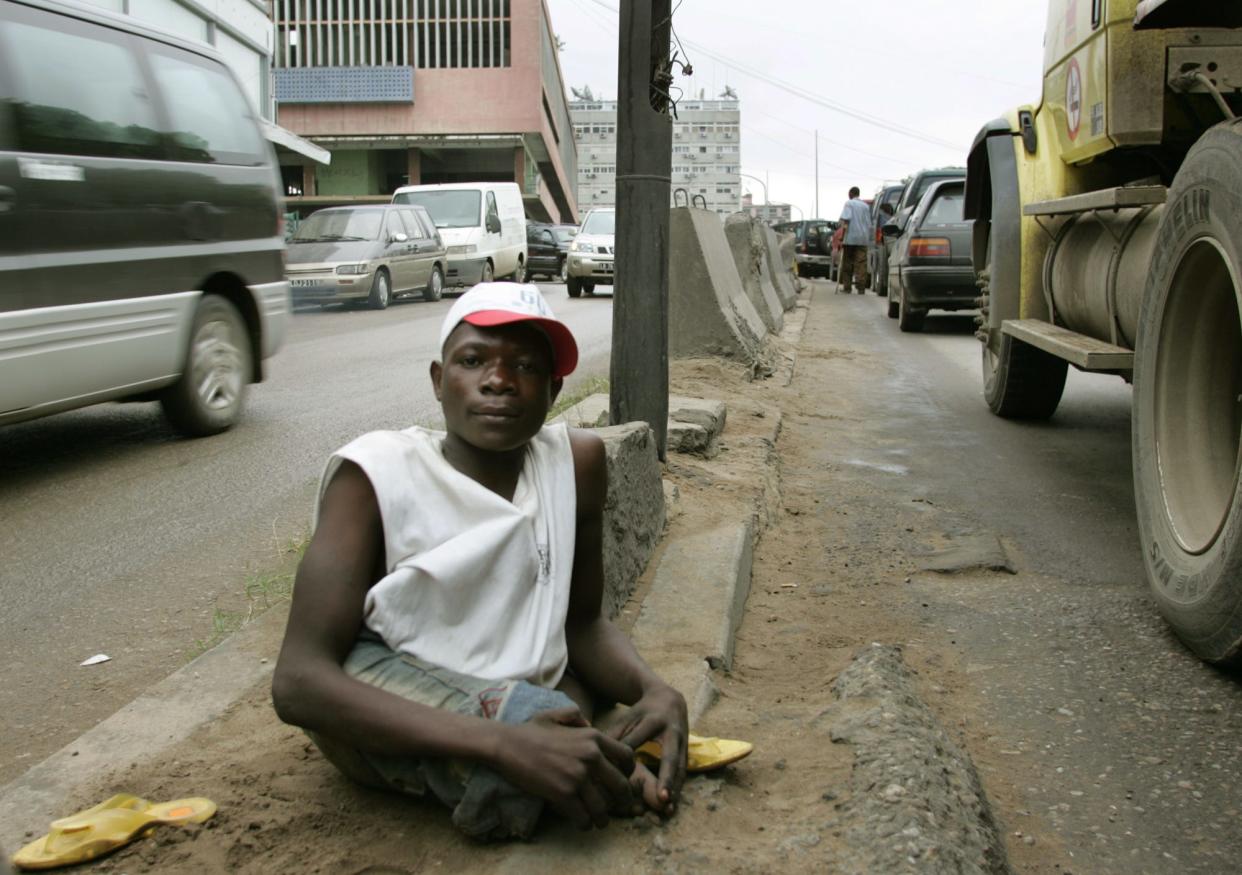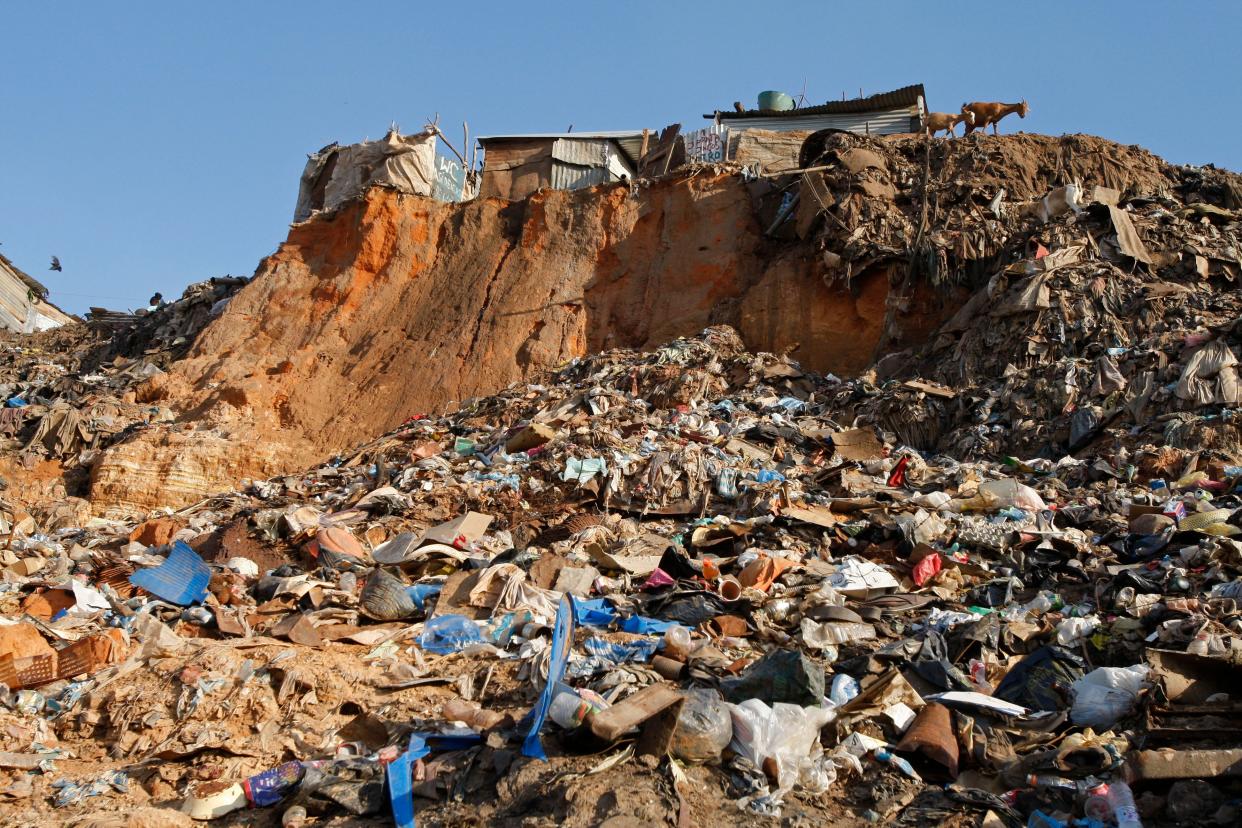I've seen the devastation of war. War must not continue.
One step. … Thirty steps. Click!
I stopped walking. My body began to tremble. My forehead began to sweat. Is this how my life ends? In this corn field?
I was working for the World Food Programme during Angola’s civil war, a 27-year conflict involving U.S.-supported National Front for the Liberation of Angola (FNLA) and The National Union for the Total Independence of Angola (UNITA) and Soviet-supported Popular Movement for the Liberation of Angola (MPLA).
The Angola civil war contributed to the country’s landmine crisis.
We were in Cuando Cubango, one of the provinces with the most landmines, to assess the impact of drought on crops. Earlier that day, before walking in the corn field, a powerful blast several hundred yards from our motel ejected a plume of dust high in the air. My colleague suspected cows grazing in the area tripped a landmine. From the magnitude of the blast, the unsuspecting animal likely triggered an anti-vehicle landmine. “Do not wander off the road for a bathroom break,” warned our local guide.

Because an anti-personnel landmine can be triggered by a weight as little as five pounds, what sounded like a click made me think it was a landmine. I tried to remain still but my mind raced. God, please don’t let me die today. I did as I was told. I walked right behind the man along the edges of his poorly established corn field. I stepped right where he stepped. What did I miss?
False alarm. The “click” came from a dried limb which snapped under my body weight.
I laughed at myself for a while whenever I told this story, but the story was not funny.
I worked in a country that, according to a 1998 report by the U.S Department of State, had the highest rate of amputees in the world due to landmines. Yet landmines did not just maim; they made farming the land impossible, which exacerbated vulnerability to food insecurity. Thanks to the advocacy by Princess Diana and others, the landmine crisis in Angola was brought to the world's attention, and 133 countries signed The Anti-Personnel Mine Ban in 1998 to prohibit production, stockpiling and use of landmines.
The United States, along with Russia and China, have not signed the treaty.
A decade after my time in Angola, millions of landmines were still present in the country. It is estimated that almost 80,000 Angolans were killed or injured by landmines between 2008 and 2019, according to Landmine and Cluster Munition Monitor, an international organization monitoring progress in eliminating landmines.
It was not just the United States and Soviets who supported the Angola civil war. Cuba, the apartheid South Africa, Portugal and China also played a part. Sadly, the result of the civil war was about 1 million Angolans dead and 4 million displaced. Those who were displaced became more vulnerable to food insecurity.

Witnessing the impact of the war was traumatizing.
I saw child soldiers armed with grenade launchers on their shoulders on the roadside. I saw child amputees on the roadside. I saw heavy-caliber weaponry on the roads. I saw destroyed tanks and military vehicles on the roadside. Years after my time in Angola, an accidental balloon pop at a birthday party made me want to take cover. I was lucky to be alive but we lost a couple of colleagues to the war.
I am anti-war for the suffering war creates.
Almost 200,000 Iraqis were killed in the U.S.-led Iraq war, according to NBC News. That war also left 4,500 members of the U.S. military dead and 32,000 injured all because of false intelligence. It was a war that even President Joe Biden believes was fueled by rage and plagued by mistakes.
“After 9/11, we were enraged in the United States. While we sought justice and got justice, we also made mistakes,” Biden said during his visit to Tel Aviv after the Oct. 7 Hamas attack.
The Hamas attack that left 1,200 Israelis dead must be condemned. The hostage-taking and alleged accounts of sexual violence by Hamas must be condemned. Israel’s rage is understandable.
Yet there is more than rage causing human suffering in the Israel-Palestine territory. Landmines laid in the 1960s and 1970s are killing and injuring civilians in the West Bank. Bombs made in the United States are killing and injuring civilians in Gaza.
Many of those killed since Israel launched the campaign to eliminate Hamas are women and children, yet “deaths by starvation and disease may top deaths by bombs” as families become “squeezed into deadly ‘safe zones,’” warns Save the Children, a global nonprofit working to ensure children do not die from preventable causes.
There doesn't appear to be a cease-fire anytime soon.
The United States vetoed a United Nations resolution to call for an immediate humanitarian cease-fire in Gaza, and according to the Associated Press, it plans to sell more weapons to Israel.
Another grave mistake.

Walter Suza of Ames, Iowa, writes frequently on the intersections of spirituality, anti-racism and social justice. He can be contacted at wsuza2020@gmail.com.
This article originally appeared on Des Moines Register: I've seen the devastation of war. War must not continue.
